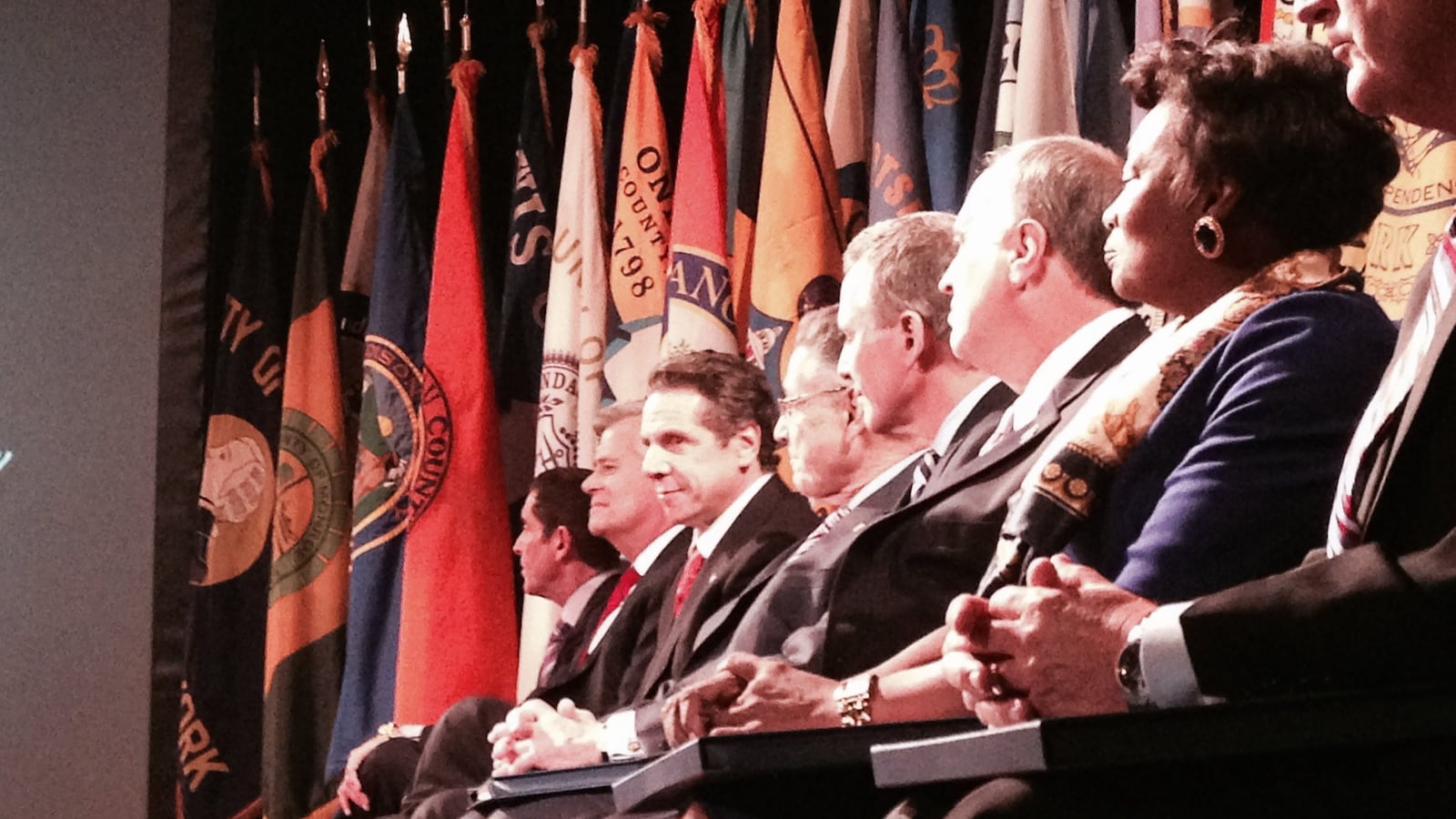If Andrew Cuomo has his way, voters will do more this fall than reelect him to a second term as governor of New York State. They’ll also approve a $2 billion bond to pay for classroom technology costs that could balloon in coming years.
The proposal was among the most substantial schools-related offerings in Cuomo’s 2014 State of the State speech today. Nestled among proposals to expand pre-kindergarten and give bonuses to top-rated teachers, the technology proposal also reflected the most specificity about funding.
Under the plan, voters would let state borrow $2 billion that would go directly toward making schools wireless, buying tablets and wired whiteboards, and expanding programs that allow students to use technology to learn at their own pace.
The purchases would come at a time when the state’s anticipated move toward online testing aligned to new Common Core standards promises to put new pressures on schools’ technology infrastructure. Schools are also increasingly turning to “blended learning,” which includes some work done online, to tailor instruction to individual students.
So far, Cuomo said, some schools and districts have been able to keep up with the changes, while poorer school districts are being left behind.
“There are some schools where there are sophisticated new computer systems starting in first grade,” Cuomo said. “There are some schools where the most sophisticated piece of electronic equipment is the metal detector that you walk through on your way to the classroom.”
He added, “If you aren’t on the information superhighway it can leave you behind at a hundred miles per hour.”
The $2 billion bond, called “Smart Schools,” would need to be put up to a referendum, much like the casino construction referendum that was passed during last year’s election. First, however, the state would need to pass legislation to allow it to put it up for a vote.
“Let’s go to the people of this state,” Cuomo said. “Let’s go to them in November. Let’s put on the ballot a bond referendum for the Smart Schools initiative.”
Cuomo was far less specific about how he would fund other education initiatives floated during the speech. As anticipated, he endorsed the idea of expanding access to full-day pre-kindergarten throughout the state, but he did not say where the funds to cover “truly universal” pre-K would come from. New York City Mayor Bill de Blasio, sitting in the audience, has proposed an income tax hike on the city’s highest earners to pay for pre-K expansion, a plan that Cuomo has reportedly rejected.
Cuomo also reprised ideas for competitive grants to school districts to retain high-performing teachers expand career-oriented schools that are like Brooklyn’s Pathways in Technology Early College High School.
Cuomo also said he would propose legislation to require state education officials to notify law enforcement agencies if they are made aware of any religious or racial perception in schools. He said the fact that state officials learned about alleged anti-Semitism in the upstate Pine Bush district from a New York Times report had prompted him to act.

